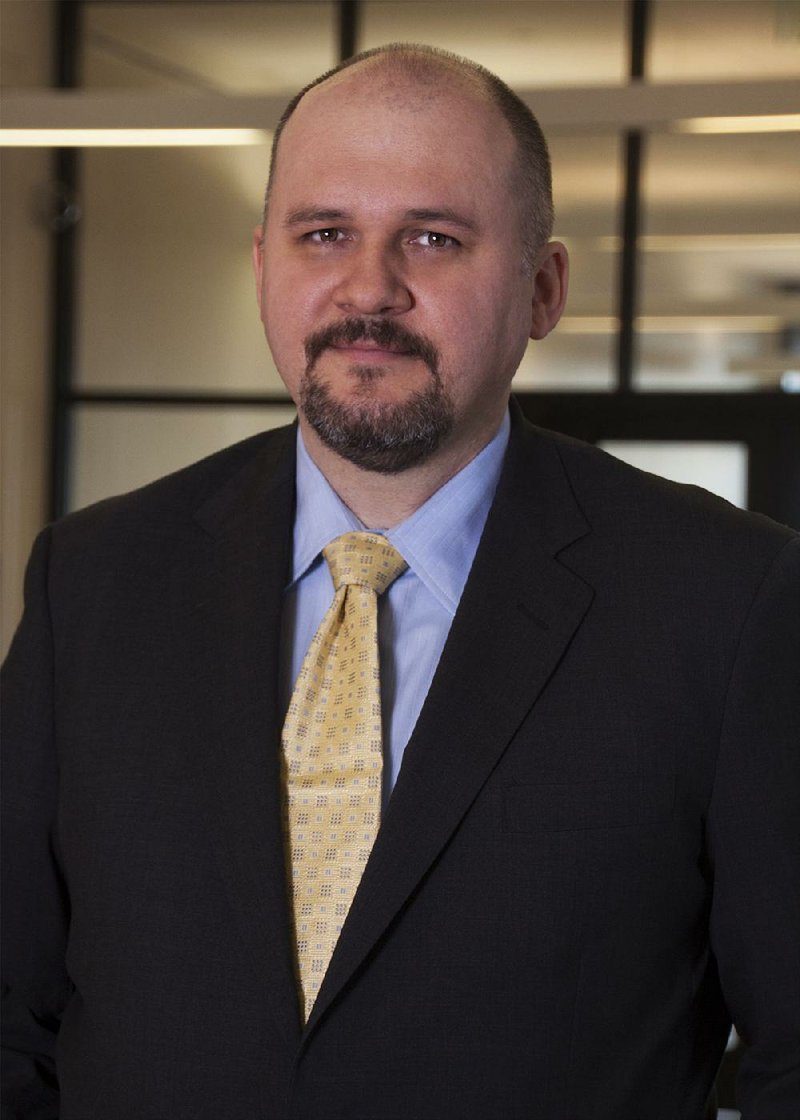Chief executive officers with large networks of contacts tend to make more merger and acquisition deals than their less-connected counterparts -- and those transactions tend to be less than successful, a study co-authored by a professor at the University of Arkansas at Fayetteville found.
And CEOs with a large network of connections who make merger and acquisition mistakes generally don't draw much heat from their boards or investors, according to the report.
Tomas Jandik, associate professor of finance in the Sam M. Walton College of Business, co-authored the study with Kathy Fogel at Suffolk University in Boston and Rwan El-Khatib at Zayed University in the United Arab Emirates. The study will be published in the Journal of Financial Economics.
A key factor in the study was looking at the strength and reach of a CEO's social contacts. Mergers and acquisitions were examined because they are a good test of the CEO's knowledge of the target and ability to persuade the board of directors to seal the deal.
Jandik said trying to measure the human effect on the world of business is difficult but worthwhile.
"I hate studies that confirm the grass is green," Jandik said.
BoardEx data were used for biographical information on board members and senior executives to document connectivity to the marketplace. It allowed the researchers to factor the importance or power of individuals within the network of nearly 400,000 U.S. corporate officers and directors. Mergers and acquisitions by S&P 1500 firms from January 2000 to December 2009 were examined.
The study determined that CEOs who are "highly connected socially" not only made more -- and less valuable -- acquisition and merger deals than less-connected peers but they also avoided repercussions for their performance.
Jill Fisch, Perry Golkin professor of law and co-director of the Institute for Law and Economics at the University of Pennsylvania Law School in Philadelphia, said examining a CEO's connectivity was a creative way to quantify a CEO's power. She said successful CEOs who make their way to large companies tend to do it by pushing bigger deals that gain them notoriety or prestige, giving them more credibility and influence, even if it's not warranted.
The little more than 4,000 CEOs examined in the study were given a percentage value measuring their connectivities each year. Steve Ballmer, the former CEO of Microsoft, was one of the most socially connected while Rodney Sacks, CEO of Monster Beverage, ranked in the lowest 1 percent.
"Our evidence suggest that network position matters. Being at the center of a network, instead of on the periphery, provides an individual with more access to information and more power to control information flows," the authors wrote in the study. "It also grants the individual authority and dominance over others by virtue of enhanced bargaining position, more numerous friends, more powerful friends, and more resources to fall back on."
The study found that highly connected CEOs are a corporate governance challenge since they can become powerful enough to pursue acquisitions despite the possible downside for shareholders.
The study examined four factors -- "closeness, degree, betweeness and eigenvector centrality."
Closeness is the measure of the shortest distances between a person and all others in his network and indicates how well an individual can gain information from those around him.
Degree is the number of direct ties a person has in a network with more connections making the individual more central in the network.
"This is a bit like the six degrees of Kevin Bacon game," Jandik explained.
The game is based on the six degrees of separation concept that argues that any two people are six or fewer acquaintance-links apart.
Betweeness measures how often an individual lies on the shortest path between any two others in a network and is a measure of how much control they have over information flow.
"They can choose to modify information," Jandik said of betweeness. "Or they can stop it all together."
Eigenvector centrality measures the importance of the person in the network by determining how connected the person is to other highly connected individuals. In this instance, Jandik said, a person with only 10 connections can be far more influential than one with 100, if one of those 10 connections is Bill Gates.
According to the study, compensation is 8 percent more for higher-connected CEOs even in the face of significant negative results in an acquisition. It also showed higher-connected CEOs have a 25 percent greater chance at nonmonetary awards compared to those who are less connected. The study found no evidence that higher-connected CEOs use their networks to the benefit of investors.
David Becher -- associate professor of finance at the Lebow College of Business at Drexel University in Philadelphia, who studies corporate governance as well as mergers and acquisitions -- said the takeaway from the study isn't that well-connected CEOs are bad for companies, but that they come with their own sets of problems.
He noted top CEOs tend to have fair measures of pride and overconfidence, and they often reach places of power by expansion through mergers and acquisition. In the face of these strong personalities, a board needs to keep the best interests of investors and the company at heart.
"They add value," Becher said of well-connected CEOs, "but there needs to be checks and balances."
SundayMonday Business on 11/02/2014
